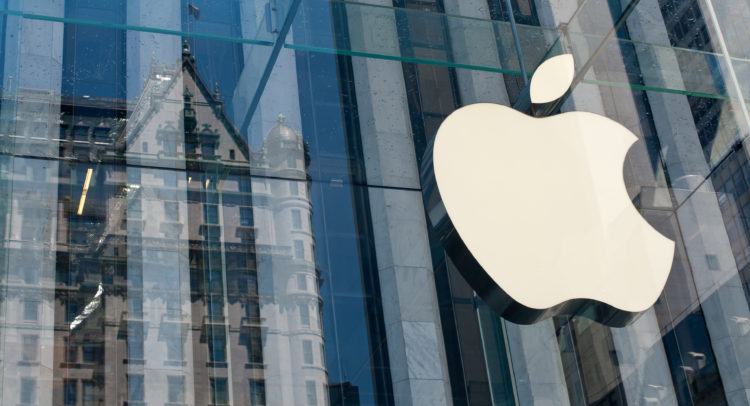U.S. stocks cascaded Thursday — with Apple leading the way down — as renewed recession jitters permeated Wall Street and wiped gains from a fleeting relief bounce in the previous session.
The S&P 500 plummeted 2.1% to a fresh 2022 low, while the Dow Jones Industrial Average erased more than 450 points, or around 1.5%. The Nasdaq Composite sank 2.8%.
Technology stocks led the slide lower as heavily weighted Apple (AAPL) shares erased roughly 5% on concerns around waning demand that prompted a downgrade from Bank of America. Analysts warned in a note out Thursday that BofA’s research team “expects the demand trajectory to worsen.”
A report from Bloomberg also revealed one of Apple’s most senior executives was leaving the company after he turned up in a viral TikTok video making an off-color joke.
Apple’s declines began Wednesday following a report the tech giant is backing off plans to increase production of its new iPhones this year after demand for the product failed to meet expectations.
Elsewhere in corporate news, Meta Platforms (META) announced plans to restructure teams and reduce headcount for the first time in the company’s history, telling staff the “macroeconomy remains tough and volatile.” Shares closed down 3.7%.
CarMax (KMX) shares also tumbled nearly 25% after the vehicle buyer reported second-quarter earnings that missed Wall Street estimates, citing “affordability challenges” that weighed on sales.
And Bed Bath & Beyond (BBBY) fell 4% on Thursday after the company posted a wider quarterly loss as persistent merchandising and inventory snafus and inflationary pressures hit the home goods retailer.
On the economic data front, initial jobless claims slid to 193,000, the lowest since April, in the week ended Sept. 24 from a downwardly revised 213,000 the prior week, the Labor Department said Thursday. Economists called for 215,000 claims, according to consensus estimates compiled by Bloomberg.
Elsewhere, a third reading from the Commerce Department on gross domestic product (GDP) showed U.S. economic activity contracted at an annualized 0.6%.
The renewed risk-off mood in the market places all three major averages on pace to give up most of the gains that came after England’s central bank said Wednesday it would resume bond purchases to help stabilize financial and currency markets. Investors celebrated the shift away from aggressive policy tightening by officials in recent months. The S&P 500, Dow, and Nasdaq each rallied roughly 2%.
EY Parthenon Chief Economist Gregory Daco said in a note that “the absence of proper policy coordination along with the speed and synchronization of rate hikes” risks an “excessive and disorderly tightening of financial conditions.”
“In the UK, the economic outlook has recently taken a turn for the worse with the release of Prime Minister Liz Truss’ budget leading to a market rout, with treasury yields surging to their highest since 2010 and the British pound plunging to its lowest level in 37 years,” Daco said.
Following the Bank of England’s intervention Wednesday – the purchase of around 65 billion pounds, or roughly $69 million, of long-dated gilts – British 30-year bond yields tumbled 100 basis points after touching a two-decade high.
In the U.S. on Thursday, Treasury yields nudged higher after rising — and then falling — at the fastest pace in decades. On Wednesday, the benchmark 10-year Treasury note — a crucial economic benchmark — briefly hit 4%, hitting an important milestone amid the worst bond sell-off since 1949.
Atlanta Fed President Raphael Bostic said on Wednesday that the decision by his central bank peers across the Atlantic to return to bond buying did not change his views on U.S. Federal Reserve policy or stoke fears England’s economic faults could pour over.
“I would expect growth to be below trend, we would start to see demand for a wider range of products start to soften, and we would start to see labor markets start to be more rationalized,” Bostic said, adding that if job openings fall substantially, officials may contemplate stopping and holding at that level.
Source: Yahoo Finance










